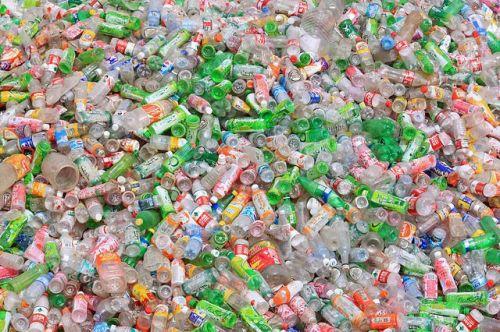
Abstract: Woodrow Wilson International Center for Scholars published an articleWill China's waste import ban create a disaster or provide a good opportunity for change? written by Guo Chen, an associate professor of geography and global urban studies at Michigan State University. The author said that in early January this year, China’s “national sword” policy banned the import of non-industrial plastic waste. Solving the garbage problem requires an effective waste management system and a detailed understanding of the socio-economic dynamics of Chinese cities. China must find ways to integrate the informal recycling industry into a more efficient recycling system while providing new jobs for informal scrap industry workers.
The full text of the article is as follows:
In early January of this year, China’s “National Sword” policy banned imports of non-industrial plastic waste. The ban forces exporting countries to find new dumping grounds for their waste, which is estimated to total nearly 111 million metric tons by 2030. China’s decision has exposed deep structural flaws and interdependencies in the global waste management system. Western countries that have long depended on China to take their garbage are now struggling to deal with mounds of plastic trash, while China lacks the low-priced labor needed to effectively sort and process waste.
The Impending Waste Crisis
In 2016, China imported 56 percent of the world’s solid waste. Unsurprisingly, China’s sweeping reforms have been met with pushback and complaints from waste-exporting countries that this will leave them on the brink of a “waste crisis.” Critics include the European Union, which sends 87 percent of its total recycled plastic directly or indirectly to China. United States recyclers have also criticized the policy, specifically the short notice, a lack of clarity on which materials are banned, and what they deem to be an “impossible” standard of less than 0.3 percent contaminants.
The United States’ representatives at the WTO asked China to halt the plan, citing concerns that it would lead to job losses in the recycling industry. Meanwhile, some experts optimistically predict that this is “a chance to slash waste” and transition to a new era of recycling. At the same time, China’s news media reports that other countries simply “have to adapt” and take responsibility for disposing of their own waste.
China’s policy has an economic rationale in addition to the environmental justifications. By banning waste imports, China is hoping to improve the quality of imported recyclables, as contaminated recyclables had become an increasing problem in China. Less contamination will reduce sorting costs and the amount of waste that ends up in Chinese landfills.
Ripple Effects for Migrant Workers
This hardline talk follows decades of relative silence from the Chinese government. Awareness of China’s overflowing trash problem or waste recycling in general is limited, even though environmentalists and NGOs have been investigating China’s long-term struggle with its domestic recycling industry.
Since the 1980s, local government recycling efforts have decreased, leaving a gap that migrant laborers and entrepreneurs have filled. This informal waste-management scheme provided work for a significant number of waste pickers and recyclers in large cities such as Beijing. But the new waste import ban threatens the livelihoods of many of these migrant workers.
This threat is exacerbated by the government’s efforts to push individuals deemed to be members of Beijing’s “low-end population” out of the city. Both the waste management sector and the migrants serving in it have been discriminated against for decades. As this population is forced to leave their homes and their jobs, they leave behind a vacuum in Beijing’s waste management system—one that won’t be mitigated by banning foreign waste.
Integrated Solutions Could Reduce Injustice
China’s waste ban exposes the intricate nexus connecting social, economic, and environmental issues within China and internationally. Some predict the ban could act as a catalyst, prompting the government to develop more innovative solutions. The “low-end” or “dirty” sectors, or those “undesirable” spaces that city planners want to eliminate, are not the culprits in creating China’s waste problems. Instead, the increasingly affluent and consumerist population, compounded by the lack of promoting public awareness and incentivizing recycling, are mostly to blame.
Although the trash ban will help, it alone is not a long-term solution. That will require effective waste management systems, as well as a nuanced understanding of the socio-economic dynamics of Chinese cities. China must find a way to not only integrate the informal recycling sector into a more efficient recycling system, but also to include new employment opportunities for informal waste-sector workers. As China enters a new front in its war on pollution, failure to address these socio-economic and environmental issues in an integrated manner runs the risk of exacerbating a persistent social divide and increasing environmental injustice.




 A single purchase
A single purchase









